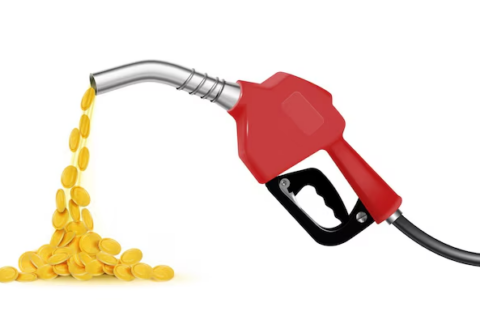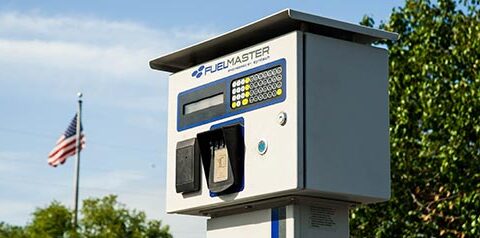The Facts About Fuel Expansion and Contraction
When you buy fuel, whether it’s gasoline or diesel, you probably never give a thought to what it does in different temperatures. Most consumers and even businesses don’t know that it expands and contracts to depend upon how hot or cold the weather is. Whether you live in Texas or Missouri, read on to find out more.
The primary thing to know is that the volume of fuel changes with the outside temperature. This means the value of what you purchase can change with the weather. So, when a wholesaler pulls their loading truck up and delivers fuel to a gas station or into a large tank, they charge the customer what’s called the “rack rate” and give them an invoice.
Learn Even More & Get Questions Answered at Ricochet Fuel’s Bulk Fuel Content Hub
Rack Rate of Gas
The rack price includes several different costs as well as the fuel itself. These costs include overhead, transportation costs, and profit. That price can also vary and fluctuate based on refining costs and the price of crude oil. Also, the rack price depends on location. How far is the fuel retailer from the wholesale terminal? A gas station located in Timbuktu is going to pay more than a station a mile away.
Rack Rate Fluctuations
At 60 degrees Fahrenheit, the fuel’s volume stays constant. Here’s what happens if it’s hot or cold outside.
If it’s warm outside and over 60 degrees when the fuel is delivered, it will have expanded because of the heat. After the fuel cools down to normal, the volume will shrink.
If it’s cold outside and less than 60 degrees when the fuel is delivered, after the fuel is pumped into a temperature-controlled tank and warms to normal, the fuel will expand.
Some Examples of Expansion and Contraction
In a location where temperatures are constant and don’t vary – like Southern California or Hawaii, if you ordered a 5,000-gallon of gas, you’d know that’s what you’d received – 5,000 gallons of gas once it was delivered into your tank. You’d receive precisely what you paid for.
But if you lived in South Dakota and received delivery on an extraordinarily frigid day, you’ll actually receive more gas. Here’s why – once the fuel is put into your temperature-controlled tank it will warm and expand.
Fluctuating Volume Measurement
To be fair, the fuel industry has changed how it measures fuel to account for its fluctuating volume.
Every buyer and seller wants to get what they pay for. The solution is in warmer states of the US wholesalers sell fuel by “net gallons.” These would include hot states like Texas, New Mexico, and Arizona.
On the other hand, cold states like Indiana, Michigan, and Illinois, buy and sell in gross gallons.
How Temperature Affects Fuel Pricing and Volume
Temperature plays a significant role in fuel expansion and contraction, impacting both fuel prices and volumes. When the temperature increases, fuel expands, leading to a slight reduction in the volume delivered. Conversely, in colder temperatures, fuel contracts, meaning that when it warms up, it expands again, potentially resulting in a bit more fuel than originally delivered.
Types of Fuel and Temperature Sensitivity
Different types of fuel behave differently in varying temperatures:
- Gasoline: Gasoline experiences minimal expansion and contraction but tends to evaporate in warmer weather, requiring extra precautions.
- Diesel Fuel: Diesel is more temperature-sensitive, especially in bulk deliveries. In colder temperatures, it thickens, making it harder to pump, while in warmer conditions, it becomes more fluid and expands, making the transfer easier.
Bulk Fuel Deliveries: Ensuring Fairness in Transaction
To ensure fairness, the fuel industry uses different measurement methods based on regional temperatures. In hot climates like Texas or Arizona, fuel wholesalers sell in net gallons, which accounts for expansion due to heat. In cooler states such as Indiana and Michigan, gross gallons are used to account for contraction in cold temperatures. This system ensures buyers receive the correct volume regardless of weather.
Benefits of Accurate Fuel Delivery
Understanding how temperature fluctuations impact fuel volume is essential for businesses that rely on bulk fuel deliveries. At Ricochet Fuel, we ensure accurate deliveries, so you always receive the fuel you pay for, no matter the temperature.
Trust Ricochet for your Fuel Delivery
With over 30 years of experience and hundreds of truck fleets throughout the United States, we know how to deliver value and quality to our customers. Ricochet provides high-quality diesel fuel delivery right to your trucks’ and equipment fuel tanks.
Ricochet Fuel can provide diesel fuel delivery directly into your vehicles, tanks, or equipment 24 hours every day, 7 days a week, 365 days a year, on a schedule that best fits your operation.



